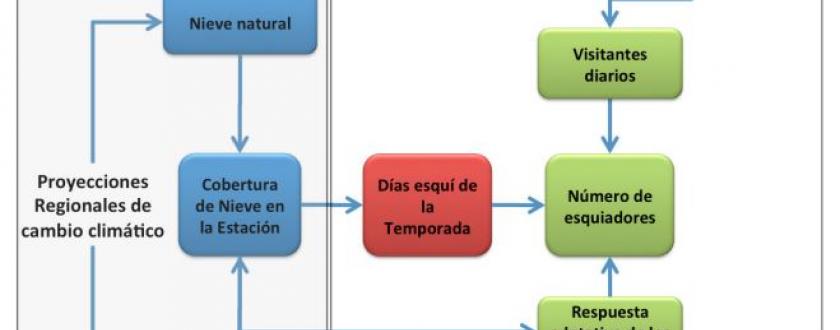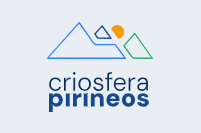NIVOPYR project: Climate change impacts and adaptation relative to Pyrenean ski resorts
Description of the case study
Winter tourism is a hugely important economic sector in high mountain zones of the Pyrenees and one of the most vulnerable to climate change. The NIVOPYR research project is an international initiative led by the Working Community of the Pyrenees (CTP) which assesses the influence of climate change on the evolution of snow tourism—specifically Alpine skiing—in the Pyrenees.
Mountain zones have been identified being particularly vulnerable to the effects of climate change and are of great interest for detecting and assessing the possible impacts. Winter tourism is highly sensitive to meteorological changes and variation in snow availability and over recent decades has become one of the main economic activities in mountain zones such as the Pyrenees. It has also played a crucial role as a source of income and local development. The main challenge facing the NIVOPYR project is to understand how climate change will affect this sector and to define adaptation strategies.
This research project is being implemented across the 49 most important Pyrenean ski resorts. These are concentrated in a central strip demarcated to the West by La Pierre Saint-Martin (Nouvelle Aquitaine) and to the East by Vallter 2000 (Catalonia).
The main objectives of the NIVOPYR project are as follows:
- Develop a specific analysis methodology in the Pyrenees region which integrates existing knowledge of present and future patterns of temperature, rainfall, snow cover and skier behaviour.
- Better understand and objectively link possible changes in snow cover and future snow production capacity with the consequent vulnerability of Pyrenean ski resorts.
- Study the potential impacts on the different Pyrenean ski resorts and analyse the most suitable adaptation strategies for each typology.
The main results of the NIVOPYR project are as follows:
- A detailed study has been conducted on the typology of Pyrenean ski resorts based on the inherent degree of vulnerability of each one (three different profiles identified). Each has been characterised in detail.
- A set of recommendations has been put together which includes measures for adapting ski resorts to climate change. Some of the proposed actions for the different types of ski resorts are as follows:
· More resilient resorts: technical adaptation measures to ensure they remain operational (grooming or artificial snow production).
· More vulnerable resorts: these require more structural solutions (development of complementary activities; improved connections; deseasonalisation or, in the most extreme cases, a complete change towards a new model of sustainable tourism based around activities which are less snow-dependant and which favour summer mountain tourism).
· Overall, the sector needs to diversify during the ski season and bring in improved snow management systems.
Case mainly developed and implemented via objectives from other non-adaptation policies, though with significant consideration for climate change adaptation aspects.
Observatori de la Sostenibilitat d'Andorra.
Additional Information
The project has been led by the Observatori de la Sostenibilitat d'Andorra in collaboration with various scientific teams organised into three working groups: 1. Physical group (provides data on the historical variability of climate parameters in the Pyrenees and the possible influence of climate change on these).
2. Technical group (comprises snow professionals and provides the other participants with socio-economic data on snow tourism, as well as identifying technical variables which determine ski resort viability).
3. Modelling group (correlates the data provided by the previous two groups).
Success: first study to objectively assess the effects of climate change on Pyrenean snow tourism; continuity by way of a new project titled Creation of a high resolution spatial model to quantify skiability and tourism influx in the Pyrenees under different climate change scenarios; cross-border agreement to address a problem which affects the entire ski tourism sector across the mountain range.
Limiting: high diversity of ski resorts and of natural and socio-economic contexts makes it difficult to adopt cross-cutting measures and means that each resort must be studied in detail; extreme meteorological factors mean that even those ski resorts with greater snow availability must adapt.
The NIVOPYR project has been funded by the Government of Andorra, the Government of Aragon and the Government of Catalonia.
This cross-border research project is part of the CTP’s joint research strategy to investigate the effects of climate change on the different socio-economic sectors throughout the Pyrenees. The project also takes forward several of the objectives in the Andorra Tourism Plan.
2013-2018 (5 years - in progress)
Reference information
PYRENEAN CLIMATE CHANGE OBSERVATORY
Avenida Nuestra Señora de la Victoria, 8
22.700 - Jaca
Huesca - España
+34 974 36 31 00
info_opcc@ctp.org





